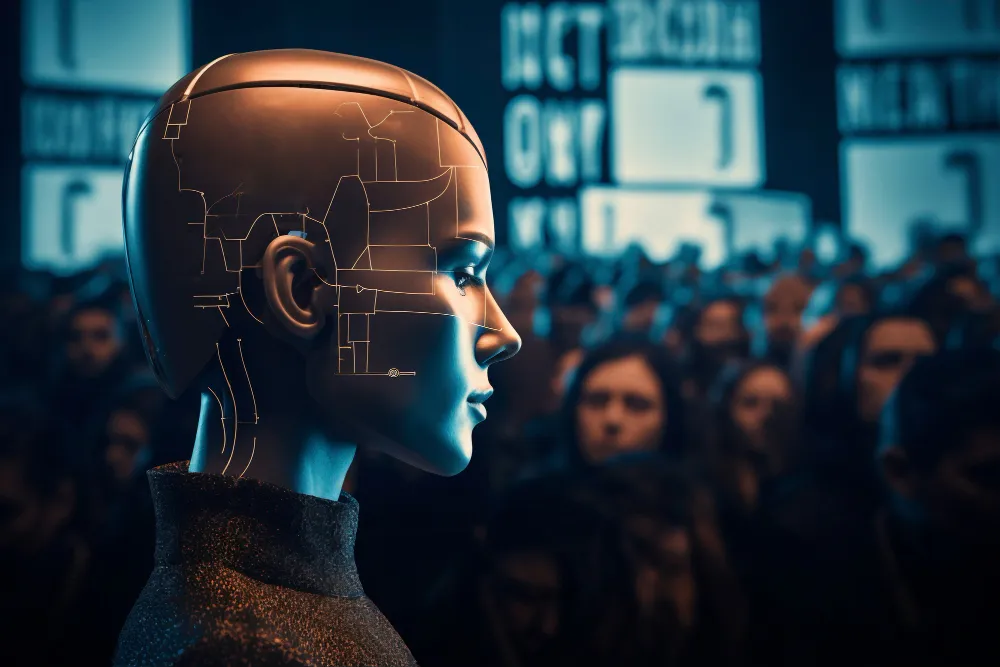Artificial Intelligence (AI) has evolved from a theoretical concept into a powerful force that is reshaping industries and influencing daily life. While AI was once the stuff of science fiction, it is now a reality that plays a crucial role in everything from healthcare to finance to entertainment. This blog post explores the journey of AI, from its origins to its current applications, and looks at where the technology is headed in the future.
The Origins of Artificial Intelligence
The concept of AI can be traced back to ancient civilizations, where myths and stories imagined intelligent beings created by humans. However, the modern field of AI began in the mid-20th century with the advent of computers. Pioneers like Alan Turing, who proposed the idea of a "universal machine" capable of performing any computation, laid the groundwork for AI. Turing's famous Turing Test, which measures a machine's ability to exhibit human-like intelligence, remains a foundational concept in AI.
In 1956, the field of AI was formally established during the Dartmouth Conference, where researchers gathered to explore the possibility of creating machines that could "think." Early AI research focused on developing algorithms that could solve mathematical problems, play games like chess, and process symbolic logic. However, progress was slow, and the limitations of early computers hindered the development of more sophisticated AI systems.
The AI Winter and Resurgence
The early optimism surrounding AI was followed by a period known as the "AI Winter," a time of reduced funding and interest in AI research due to the slow pace of progress and unmet expectations. Many early AI systems were limited in scope and struggled to handle real-world complexities, leading to disillusionment.
Despite these setbacks, AI continued to evolve. The resurgence of AI in the late 20th and early 21st centuries was fueled by advances in computing power, the availability of large datasets, and breakthroughs in machine learning. Machine learning, a subset of AI, focuses on enabling machines to learn from data rather than relying on explicitly programmed rules. This shift allowed AI systems to become more flexible and adaptable, leading to significant improvements in performance.
The Rise of Machine Learning and Deep Learning
Machine learning, particularly a technique known as deep learning, has been at the heart of AI's recent successes. Deep learning involves the use of artificial neural networks—algorithms inspired by the human brain—that can learn to recognize patterns in data. These networks are especially effective in tasks like image and speech recognition, natural language processing, and game playing.
The rise of deep learning has led to AI systems that can outperform humans in specific tasks, such as recognizing objects in images or playing complex games like Go. Companies like Google, Facebook, and Amazon have invested heavily in AI research, applying these technologies to everything from search engines to social media to e-commerce.
Current Applications of AI
Today, AI is embedded in many aspects of daily life. In healthcare, AI is used to analyze medical images, predict patient outcomes, and develop personalized treatment plans. In finance, AI algorithms manage investments, detect fraud, and automate customer service. In transportation, AI powers self-driving cars and optimizes traffic flow.
AI's impact extends to creative fields as well. AI-generated art, music, and literature are becoming more common, raising questions about the nature of creativity and the role of machines in artistic expression. In entertainment, AI algorithms curate content, recommend movies and music, and even generate new content, such as scripts and video game levels.
The Future of AI: Opportunities and Challenges
As AI continues to evolve, its potential applications are vast and varied. The development of General AI, which would possess human-like cognitive abilities across a wide range of tasks, remains a distant but intriguing goal. Meanwhile, AI will likely continue to improve in areas like natural language understanding, autonomous systems, and personalized education.
However, the rise of AI also presents significant challenges. Ethical concerns, such as bias in AI algorithms, data privacy, and the potential for job displacement, must be carefully managed. The development of AI governance frameworks, ethical guidelines, and transparent AI systems will be crucial in ensuring that AI benefits society as a whole.
Conclusion
The evolution of AI from a theoretical concept to a transformative technology has been a journey marked by challenges, breakthroughs, and unprecedented opportunities. As AI continues to advance, it will play an increasingly important role in shaping the future of industries, economies, and daily life. By understanding the history and development of AI, we can better appreciate its potential and navigate the ethical and societal challenges that lie ahead. The future of AI holds both promise and responsibility, and it is up to us to guide its development in a way that benefits all of humanity.





















